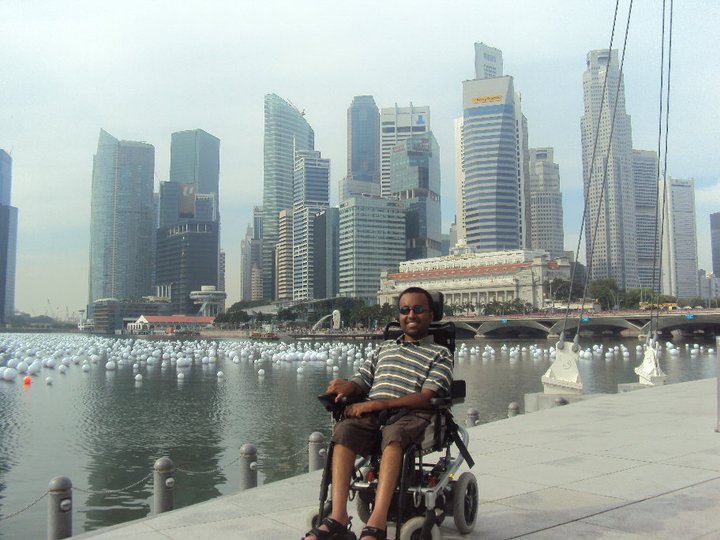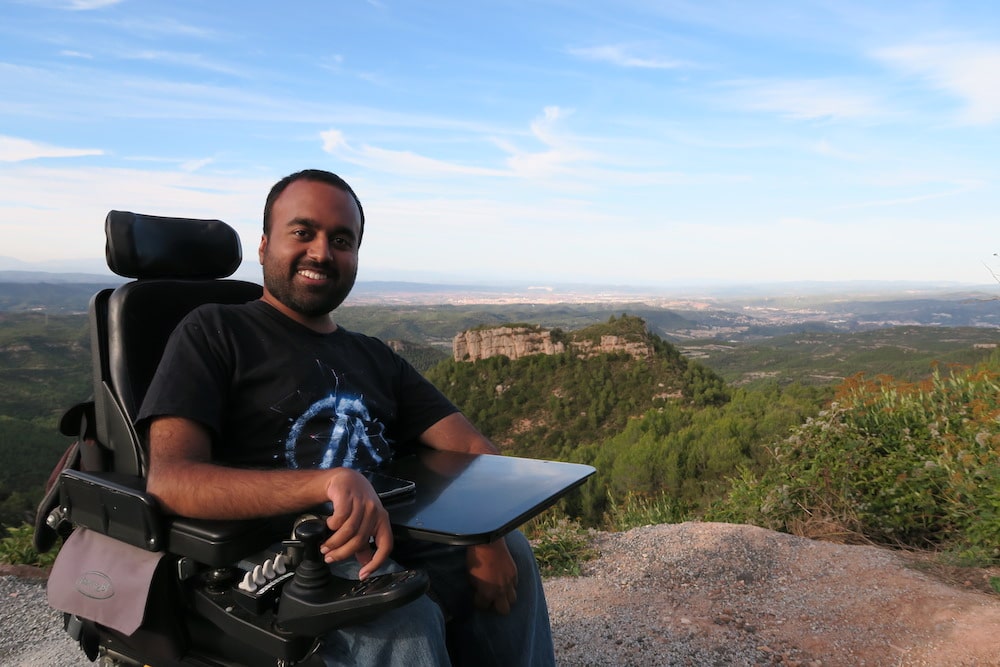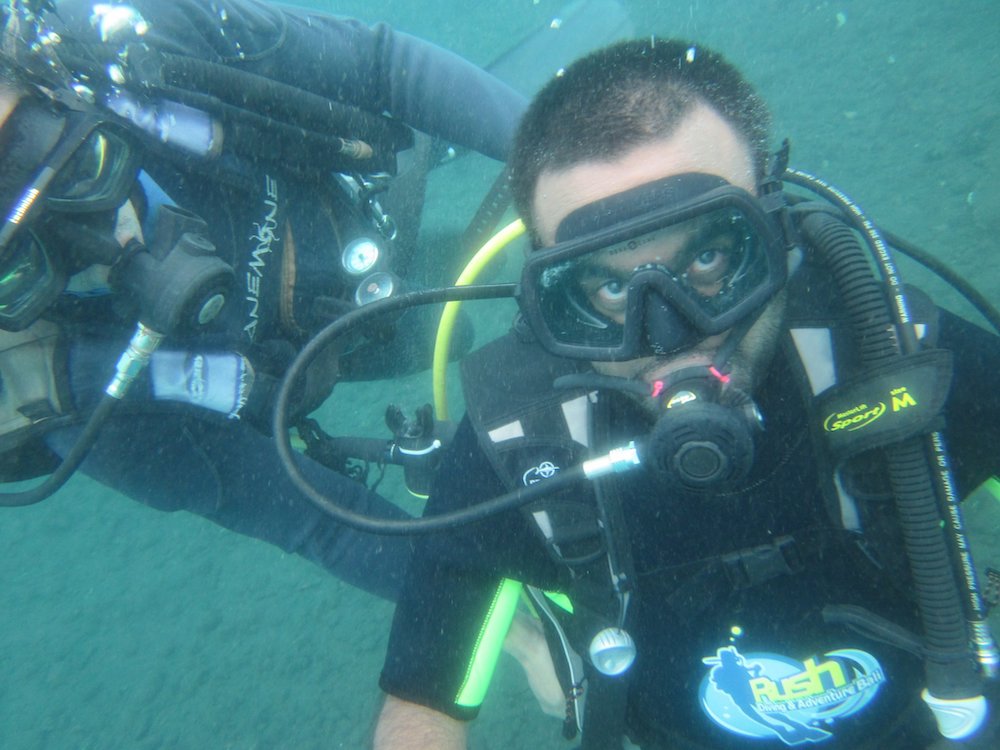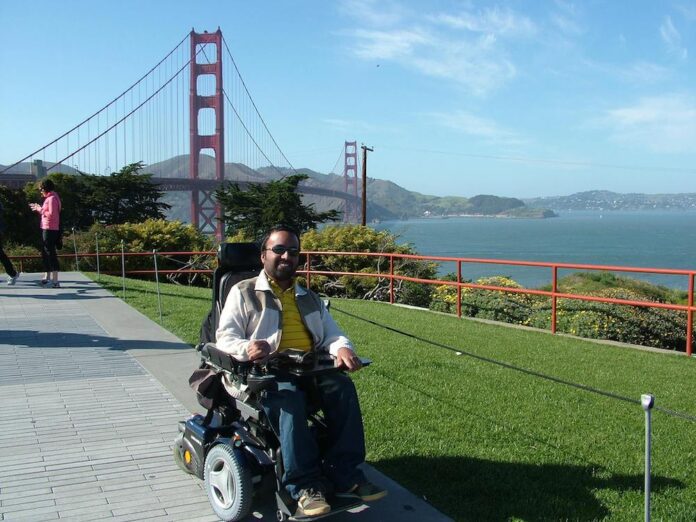Traveling can enhance your life on many levels. You may see different things, meet interesting people and, perhaps, even shift your perspective by learning something new. Two lifelong friends from England experienced these wonderful benefits. However, because they each have spinal muscular atrophy, a genetic disorder that affects the control of muscle movement, they unfortunately also experienced frustrations pertaining to accessible accommodations.

The Start-Up
In 2011, Srin Madipalli took a life-changing European road trip. “I was able to go adaptive scuba diving in Bali, wheelchair trekking in California and even on safari in South Africa,” he says. “While I knew I was incredibly lucky to have the opportunity to travel like this, I quickly discovered how difficult and time-consuming it could be to plan a trip with a wheelchair.” He relied on social media, personal recommendations and various accessible sources but found that securing distinctive accessible accommodations proved to be difficult throughout the world.
“The worst was arriving at an accommodation advertised as accessible, only to find steps up to the front door! I’d also have to research accessible tours and excursions at each new location,” he explains. Such hindrances began to impede his joy of traveling – a feeling he suspected was shared by others with disabilities. Madipalli decided to improve accessible travel. So, to fill the gap, the London-based lawyer boldly turned his passion into anew full-time profession.
“I quit my job and taught myself to code,” Madipalli explains of learning how to create a system of online commands and communication. In 2015, he and friend Martyn Sibley co-founded Accomable, an online booking platform that houses accessible accommodations worldwide including homes, apartments, swaps and other rentals. The mission: To make accessible travel as easy, simple and straightforward as possible.
Accomable produced 1,100 listings in over 60 countries, inclusive of high-quality photos and detailed information of accessibility features!

How It Grew
In 2008, years before Accomable, three men in California established an innovative, first-of-its-kind start-up. Brian Chesky, Joe Gebbia and Nate Blecharczyk couldn’t afford their rent so they launched a modest website to lease their loft to travelers. The effort became Airbnb, now considered the go-to marketplace for various types of privately-owned rental homes. Airbnb now has 4 million listings worldwide throughout 65,000 cities.
Airbnb strives to “connect travelers seeking authentic experiences with hosts offering unique, inspiring spaces around the world.” Many travelers love the company; in fact, 260 million guests have used the service. Yet, a Rutgers study – which analyzed six months of data in 2016 – found that Airbnb “hosts were less likely to pre-approve, and more likely to reject outright, the requests from travelers with disabilities than requests from travelers without disabilities.” Surprising? Maybe not. Acceptable? Definitely not.
Airbnb is committedd to addressing these findings. A statement on the company’s website read, in part, “While we have rules that prohibit discrimination against people with disabilities and an Open Doors policy that helps ensure everyone can find a place to stay, its clear that we can do more to effectively serve people with disabilities.” They went straight to the expert source for help and, in November 2017, Airbnb acquired Accomable.
Madipalli recently transitioned to the role of Accessibility Product and Program Manager at Airbnb. He relocated to San Francisco, Airbnb’s headquarters, and continues to work with his London-based Accomable staff, which includes team members with disabilities. “I think this is very important to ensure we have the right expertise and understanding of accessible travel and the issues travelers with disabilities can face.”

What’s Next?
Listings on Accomable remain active but, eventually, the site will cease and redirect to Airbnb. “Our mission at Airbnb is to enable anyone to belong anywhere – something we will be relentlessly pursuing in the months and year ahead,” says Madipalli.
Prior to the acquisition, Airbnb only listed “wheelchair accessible” as an option for travelers with disabilities, whereas Accomable itemized more than a dozen different accessibility features. Recently, Airbnb announced plans to implement a fresh “accessibility needs” checklist for hosts to create more detailed listings, such as designating entryways as step-free, doors as wide enough to accommodate wheelchairs and more.
“I am leading our efforts to build upon and improve our accessibility features and filters at Airbnb. We will be working with the community to improve these continuously in the coming months to ensure guests with disabilities can quickly and easily identify accessible listings, which suit their needs, on the Airbnb platform,” Madipalli confirms. And he’s focused on developing new policies and features to ensure accessibility information is as accurate as possible. Feedback from both travelers and hosts (via email: accomable@airbnb.com) is welcomed and encouraged.
Airbnb is exploring other ways to make its platform more user-friendly for all. For example, it partnered with Lighthouse for the Blind and Visually Impaired to research website design and ease of use. And it is rumored that, in the future, Airbnb could expand to also encompass accessibility experiences which, as Madipalli shared, is a time-consuming element.
Madipalli is serving on Airbnb’s Diversity and Belonging team to ensure that the company’s environment remains positive for professionals with disabilities. “As part of this, I’ll be helping create new initiatives to increase the numbers of disabled applicants,” he says.
Happy traveling!
Photos– Thumbnail: Srin Bali Diving; Article Photos: Above – Srin in San Francisco, Below Left – Srin in Singapore, Below Right – Srin in Monserrat






